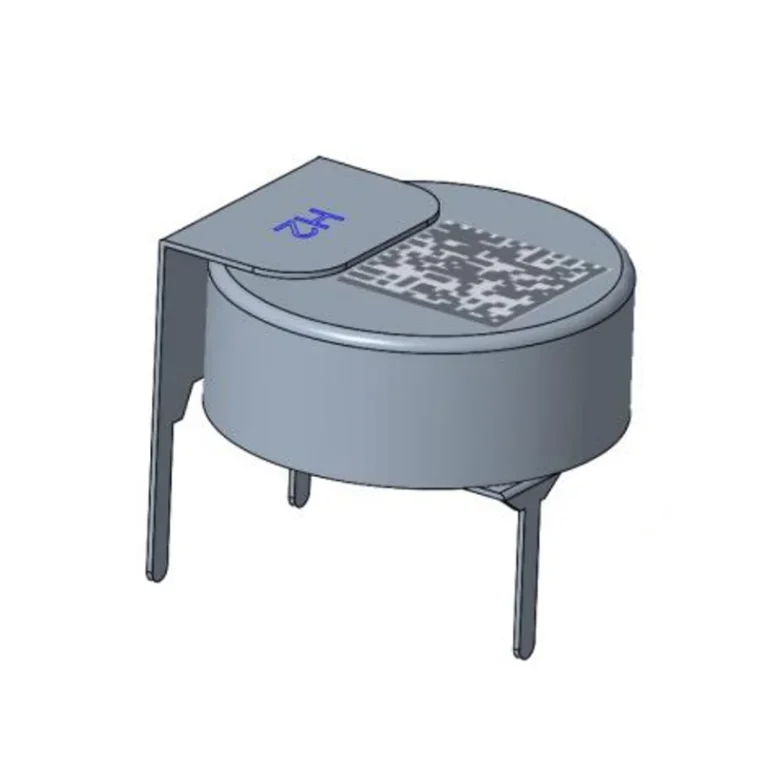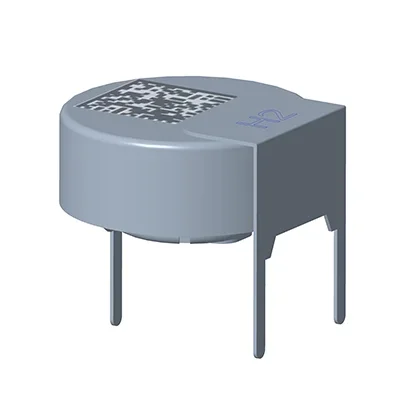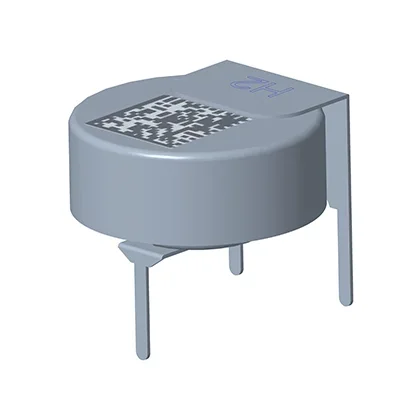In the realm of industrial safety and environmental monitoring, the detection of hydrogen gas is of paramount importance. Hydrogen, while being a clean and efficient energy source, poses significant safety risks due to its flammability and potential for explosion. The ability to accurately and reliably detect hydrogen leaks is crucial in various applications, from energy storage systems to residential environments. One of the standout solutions in this domain is the FC-H2-5000 hydrogen sensor by ProSense. This sensor, built on proven fuel cell technology, offers a robust and reliable means of hydrogen detection. In this comprehensive guide, we will delve into the intricacies of hydrogen detection, the key features of the FC-H2-5000 sensor, and its wide-ranging applications.
Understanding Hydrogen Detection
Hydrogen is the lightest and most abundant element in the universe. Its unique properties make it an ideal candidate for various industrial and energy-related applications. However, hydrogen's flammability and its tendency to form explosive mixtures with air (at concentrations between 4% and 75%) necessitate precise and reliable detection systems. Traditional hydrogen detection methods often rely on catalytic bead sensors or semiconductor sensors, which, while effective, can suffer from issues such as limited lifespan, susceptibility to poisoning, and high power consumption. The advent of fuel cell-based sensors, like the FC-H2-5000, has revolutionized hydrogen detection by addressing these limitations.
The FC-H2-5000 operates on micro fuel cell technology. When hydrogen reaches the working electrode (anode), it undergoes instantaneous oxidation, generating an electrical signal proportional to the hydrogen concentration. This signal can be calibrated to provide quantitative measurements of hydrogen levels. The sensor's design eliminates the need for consumable components, ensuring a long service life and low maintenance requirements. Additionally, its compact size and high anti-interference capabilities make it suitable for a variety of applications where space and reliability are critical factors.

Key Features of the FC-H2-5000 Hydrogen Sensor
The FC-H2-5000 hydrogen sensor stands out in the market due to its array of advanced features tailored to meet the demanding requirements of modern hydrogen detection systems. Here are some of its most notable characteristics:
Zero Power Consumption
One of the features of the FC-H2-5000 is its zero power consumption. Unlike many other sensors that require a continuous power supply to function, the FC-H2-5000 operates passively. This means it generates its own electrical signal in response to hydrogen detection without needing an external power source. This feature is particularly advantageous in battery-operated devices or remote locations where power supply is limited. It also reduces the overall cost of operation and enhances the sensor's reliability in environments with intermittent power availability.
Fast Response Time
In critical applications such as industrial safety and emergency response, the speed of detection can make a significant difference. The FC-H2-5000 boasts a response time of less than 60 seconds, ensuring that hydrogen leaks are detected promptly. This rapid response allows for timely intervention and prevents the escalation of potentially hazardous situations. The sensor's quick reaction time is a result of its efficient fuel cell technology, which enables instantaneous oxidation of hydrogen at the working electrode.
High Accuracy and Precision
Accuracy is a cornerstone of effective hydrogen detection. The FC-H2-5000 offers high accuracy, with an error margin of ±3% of the full-scale reading at room temperature (25±3℃). This level of precision ensures that the sensor provides reliable and trustworthy measurements, allowing users to make informed decisions based on the detected hydrogen levels. Additionally, the sensor's repeatability of 3% ensures consistent performance over multiple detection cycles, further enhancing its reliability.
Anti-Interference and Anti-Poisoning Capabilities
In industrial environments, sensors are often exposed to a variety of gases and contaminants that can interfere with their performance or even damage them. The FC-H2-5000 is designed with high anti-interference capabilities, meaning it can accurately detect hydrogen even in the presence of other gases. Its anti-poisoning feature ensures that the sensor remains functional and does not degrade over time when exposed to common contaminants. This robustness makes the FC-H2-5000 suitable for use in complex and challenging environments.
Wide Operating Temperature and Humidity Range
The FC-H2-5000 is engineered to operate effectively across a wide temperature range of -40℃ to 70℃ and a relative humidity range of 10% to 90% (non-condensation). This extensive operating range makes it suitable for deployment in diverse environments, from cold storage facilities to hot industrial settings. Its ability to function reliably under varying conditions ensures consistent performance and reduces the need for frequent recalibration or replacement.
Long Service Life and Low Maintenance
One of the most significant advantages of the FC-H2-5000 is its long service life of up to 10 years. This longevity is attributed to the sensor's fuel cell technology, which does not rely on consumable components. The absence of such components means there is no need for regular replacement or maintenance, resulting in a low total cost of ownership. Additionally, the calibration information for the sensor is stored in a barcode printed on the device, eliminating the need for costly gas calibration processes and allowing for individual sensor tracking.
Compliance with International Standards
The FC-H2-5000 meets the requirements of international standards such as GB15322, UL2034, and EN50291. This compliance ensures that the sensor adheres to the highest safety and performance standards, providing users with confidence in its reliability and effectiveness. These standards cover various aspects of gas detection, including accuracy, response time, and environmental resilience, making the FC-H2-5000 a trusted choice for applications worldwide.

Applications of the FC-H2-5000 Hydrogen Sensor
The versatility and robustness of the FC-H2-5000 make it suitable for a wide range of applications across different industries. Here are some of the key areas where this sensor can be effectively deployed:
Energy Storage Systems
With the increasing adoption of hydrogen as a clean energy source, the need for reliable hydrogen detection in energy storage systems has grown significantly. The FC-H2-5000 can be integrated into hydrogen fuel cell systems, hydrogen storage tanks, and electrolyzers to monitor hydrogen levels and ensure safety. Its compact size and zero power consumption make it an ideal choice for these applications, where space and energy efficiency are critical factors.
Industrial Safety
In industrial settings, hydrogen is often used in processes such as chemical manufacturing, metal refining, and semiconductor production. The presence of hydrogen in these environments poses a significant risk of explosions and fires. The FC-H2-5000 can be installed in these facilities to provide continuous monitoring of hydrogen levels, allowing for early detection of leaks and timely intervention. Its anti-interference and anti-poisoning capabilities ensure reliable performance even in the presence of other industrial gases and contaminants.
Residential and Commercial Buildings
Hydrogen is increasingly being considered as an alternative fuel for residential and commercial heating and power generation. The FC-H2-5000 can be used in small residential hydrogen detectors to provide an added layer of safety for homeowners. Its compact size allows for easy installation in confined spaces, while its long service life and low maintenance requirements make it a cost-effective solution for long-term use.
Multi-Sensor Fire Detection Systems
In multi-sensor fire detection systems, the FC-H2-5000 can be integrated alongside other sensors to provide comprehensive protection. Its ability to detect hydrogen leaks can help identify potential fire hazards early, allowing for timely evacuation and intervention. The sensor's high accuracy and fast response time ensure that it can provide reliable data in critical situations.
Portable Hydrogen Detectors
The compact size and low power consumption of the FC-H2-5000 make it an ideal component for portable hydrogen detectors. These can devices be used by emergency responders, maintenance personnel, and safety inspectors to quickly identify hydrogen leaks in various environments. The sensor's long service life and reliability ensure that portable detectors equipped with the FC-H2-5000 can be trusted to perform consistently over extended periods.

Conclusion
The FC-H2-5000 hydrogen sensor by ProSense represents a significant advancement in hydrogen detection technology. Its unique combination of zero power consumption, high accuracy, fast response time, and robust anti-interference capabilities make it a versatile and reliable solution for a wide range of applications. From industrial safety to residential use, the FC-H2-5000 offers a cost-effective and low-maintenance option for hydrogen detection. As the demand for hydrogen as an energy source continues to grow, the importance of reliable detection systems like the FC-H2-5000 cannot be overstated.
Shenzhen ProSense Technology Co., Ltd. was established in 2015 and is a gas sensing solution provider. ProSense produces the most extensive gas sensors in the market, including CO, H2, HCHO, H2S, NH3, CH4... Since its establishment, we have provided over 10 million gas sensors worldwide. In the 21st century, sensors are ubiquitous. ProSense vision is to become a leading enterprise in the sensor industry. Our mission is to provide people with a safer and more comfortable environment through sensing technology.
If you want to know more about FC-H2-5000 hydrogen sensor details or place an order,welcome to contact us.


